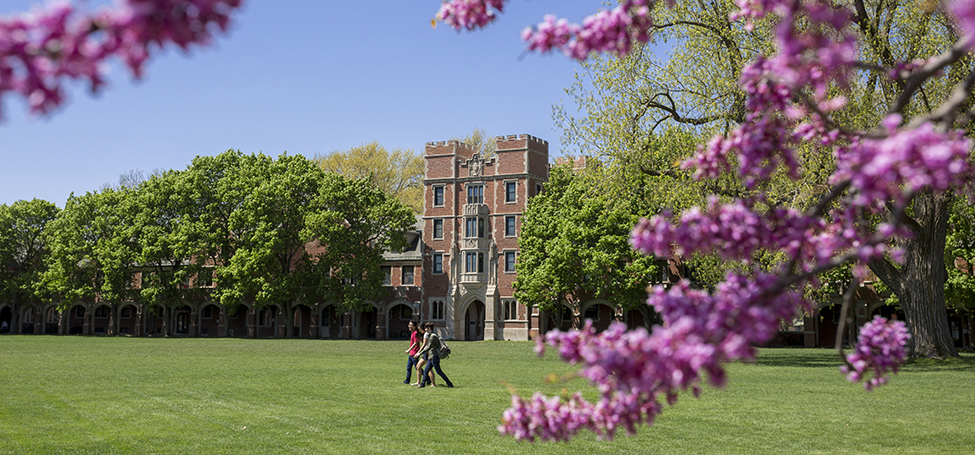
Living and Learning on Campus
Grinnell College’s renewed efforts to increase the retention of our students and implement strategies toward overall student well-being and success led President Kington in 2015 to appoint a Task Force on Residential Learning to evaluate intersecting areas of campus life. The task force goals are to:
- Define the goals of self-governance in order to serve the mission of the College. Self-governance has been and continues to be an important element of Grinnellian tradition and identity. However, there is a clear need for the community to engage in some collective introspection around how we understand self-governance. A pattern we see is students interpreting the “self” in self-governance to refer to just the individual, rather than to a broader community that is self-governing. Some students’ beliefs that self-governance means “no rules and/or rule-enforcement” have contributed to data that show significant numbers of our students being negatively impacted by other students’ use of alcohol and other drugs.
- Suggest avenues to infuse the College mission into the residential experience. In recent decades, the residence halls have evolved to areas where many students “hide” from their looming academic responsibilities, and our alcohol policies have left the lounges to be used primarily for community-building around alcohol. Students’ residential environments should not detract from the academic experience but should instead contribute positively to learning by supporting a healthy framework to focus on academics and offering additional opportunities to support cocurricular and extracurricular learning goals. Thoughtful programmatic endeavors can revive the status of the residence halls as a place to learn, govern, and explore adulthood in a mentored environment.
- Help students thrive, not just survive. The intersections of student mental health, substance use and abuse, sleep, loneliness, and academic rigor are converging in ways that negatively affect student well-being, which affects retention and success. For example, exit interview data from students who opted to leave Grinnell displayed a struggle to find a social niche. Prospective students and their families report discomfort around Grinnell’s “party culture,” and the 2015 data from the National College Health Assessment returned some concerning statistics about the campus environment around mental health as well as the individual and community impacts of substance use. A public health approach suggests that we must work at multiple levels ranging from individual to interpersonal to institutional levels. Some alcohol policy changes have already been made (see Page 9), but we are aware this constitutes only one step in a complex series of solutions.
- Provide leadership development for students. Grinnell is notable for a large number of student organizations and generous funding from the student activity fee, but most function without significant relationships with faculty or staff. Herein lies an opportunity to meaningfully situate leadership skill development, which is valuable in College and also in postgraduate success. Given the wealth of student organizations, many students are in leadership positions at some point during their time on campus. Expectations for increased mentoring, the creation of formal mechanisms to ameliorate risk, and dedicated programming aimed at supporting leadership skill development will benefit our students.
In 2016–17, the task force will refine its recommendations. Most importantly, it will launch a year of consultation with students, staff, faculty, and alumni in order to rearticulate self-governance and create a definitive text on this topic that will guide a new generation of Grinnellians.
